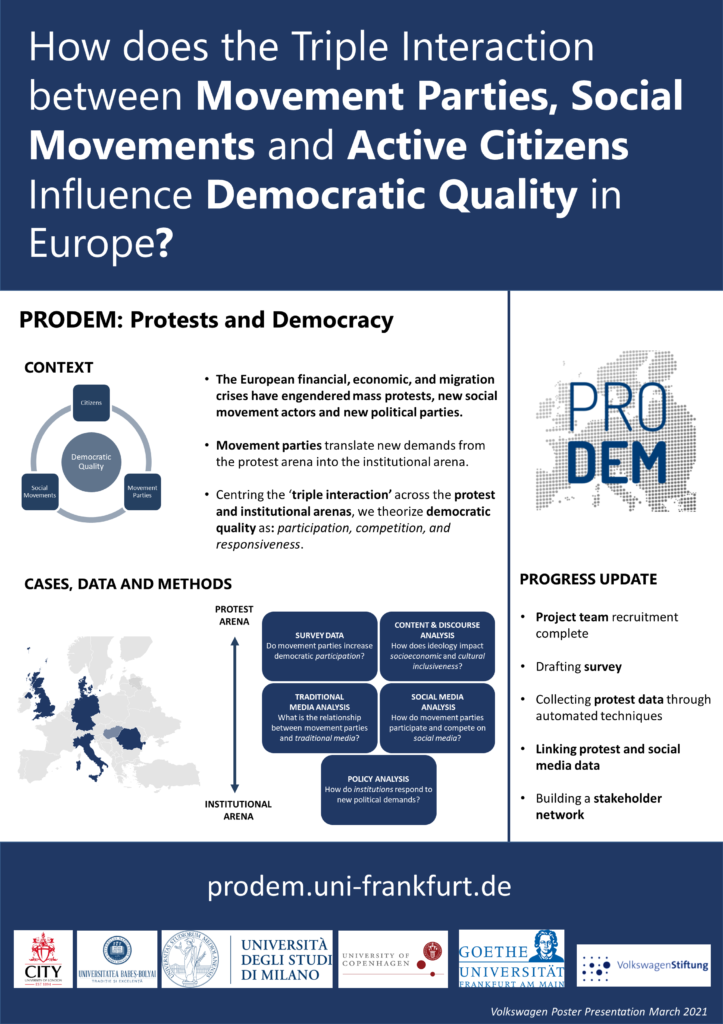ProDem researchers Matthias Hoffmann, Felipe G. Santos, Christina Neumayer, and Dan Mercea have published the article “Lifting the Veil on the Use of Big Data News Repositories: A Documentation and Critical Discussion of A Protest Event Analysis” in Communication Methods and Measures. In it, they engage with big data repositories and critically discuss the usage of big data, its implications and invisibilities for social science research in general, and protest research in particular.
The article is published open access and can be viewed here: “https://www.tandfonline.com/doi/full/10.1080/19312458.2022.2128099
